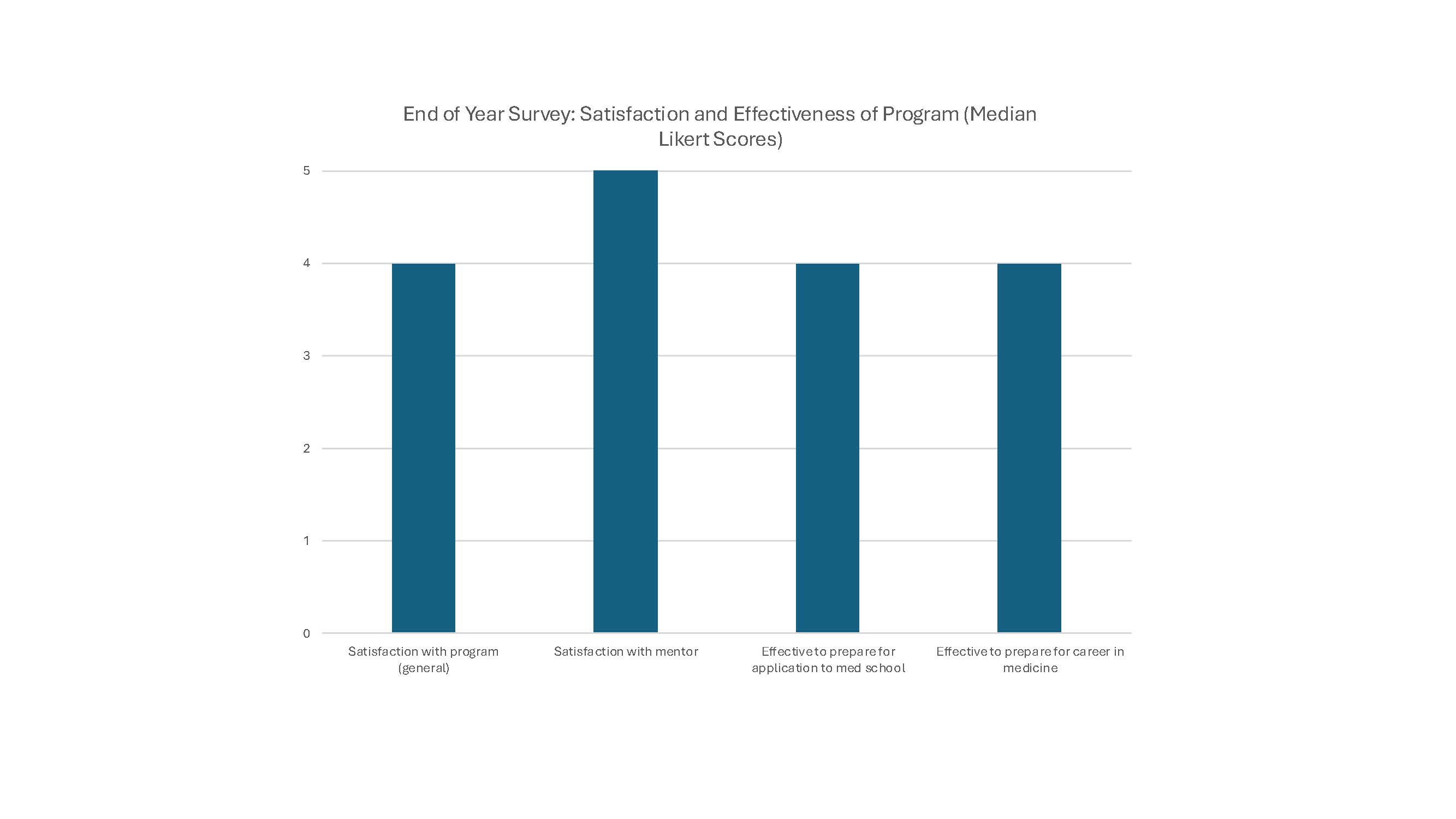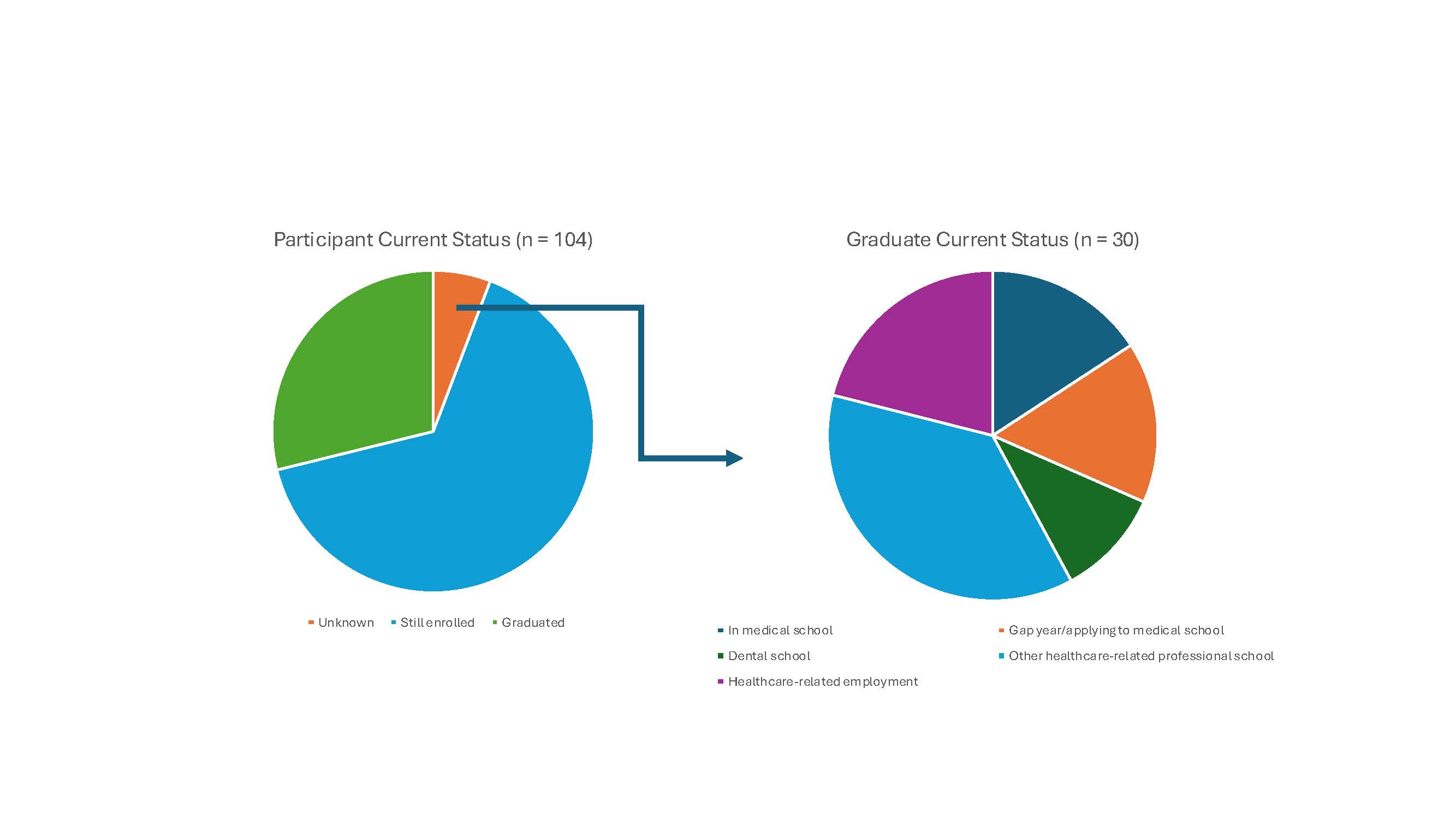Medical Education 7: DEI
Session: Medical Education 7: DEI
454 - Building Pathways: A Longitudinal Mentorship Program for URM Students in Pediatrics
Saturday, April 26, 2025
2:30pm - 4:45pm HST
Publication Number: 454.4505
Brit L. Anderson, University of Louisville Department of Pediatrics, Louisville, KY, United States; Leondra Gully, University of Louisville School of Medicine, Louisville, KY, United States; Dominique Elmore, University of Louisville School of Medicine, Louisville, KY, United States; Cody Penrod, Norton Children’s Hospital/University of Louisville School of Medicine, Louisville, KY, United States; Kerry Caperell, University of Louisville, Louisville, KY, United States; Danielle Graff, University of Louisville School of Medicine, Louisville, KY, United States; Rebecca Hart, University of Louisville School of Medicine, Floyds Knobs, IN, United States
- BA
Brit L. Anderson, MD (she/her/hers)
Pediatric Emergency Department Physician
University of Louisville/ Norton Children's
Louisville, Kentucky, United States
Presenting Author(s)
Background: The United States is increasingly diverse, yet many minority groups remain underrepresented in medicine. Lack of mentorship is a noted barrier. To address this, in 2020, we established a mentorship program for underrepresented minority (URM) premedical students at a major urban university.
Objective: Describe outcomes of the mentorship program, now starting its fifth year.
Design/Methods: A longitudinal mentorship program was implemented in 2020 and expanded since. Participants completed entry surveys including Likert scale questions assessing familiarity with the medical school application process and confidence in their ability to succeed in medicine. Follow-up surveys at the end of the participants’ first year and after graduation, included questions on satisfaction with the program and their eventual career paths. Data were analyzed using descriptive statistics; Wilcoxon-Signed Rank tests compared entry to end of year/graduation responses.
Results: Since 2020, the program admitted 104 students; 100% completed entry surveys. Currently, 68 students remain enrolled, and 30 have graduated. Initial median Likert scores were as follows: awareness of available resources (2), understanding of the medical school application process (2), confidence in acceptance to medical school (3), and mentor support (4). 53 (51.0%) participants completed end-of-year-one surveys. 34 (64.2%) were somewhat/completely satisfied with the program; 35 (66.0%) felt the program effectively prepared them to apply to medical school. Significant increases in median Likert scores were noted in the following categories: understanding of application process (median 3, p < 0.001), awareness of resources (median 3, p < 0.001), understanding of what medical school is like (median 3, p = 0.003), and confidence in acceptance (median 4, p = 0.031) (Fig 1). Satisfaction and effectiveness scores are shown in Fig 2. Of 30 graduates, 19 (63.3%) are employed in healthcare or receiving ongoing healthcare-related education (3 in medical school, 3 applying to medical school, 2 in dental school, 7 in other healthcare-related professional school) (Fig 3). Although only 3 graduates have completed post-graduation surveys, all reported that the program led to moderate to very large gains in career clarification, self-confidence, and confidence in pursuing a career in medicine.
Conclusion(s): Most participants in this mentorship program for URM premedical students reported increased confidence and a greater understanding of the medical school journey. The significant number of graduates pursuing healthcare-related careers highlights the success of this program.
Entry vs End of Year One Surveys: Median Likert Scores for Agreement
.jpg)
End of Year Survey: Satisfaction and Effectiveness of Program (Median Likert Scores)

Participant Current Status


